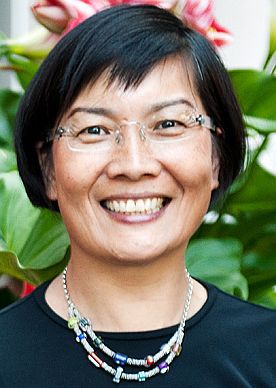 Targeted Learning, Meandering Learning: Exploitation vs. Exploring Learning In Organizational Context
Targeted Learning, Meandering Learning: Exploitation vs. Exploring Learning In Organizational ContextExploration learning is associated with experiment, discovery, play, risk … and long-term perspective.
Exploitation learning is associated with refinement, efficiency, production, execution…and short-term perspective. An organization that fails to properly balance the allocation of resources between these two will eventually face some crises. For instance, emphasis on exploration learning is likely to yield anemic profits, and focusing only on exploitation learning will choke off creativity and narrow organizational competence. Another way of looking at these two types of organizational learning is: Exploration concerns the know-why’s, and exploitation concerns the know-how’s and know-what’s.
James March’s article, “Exploration And Exploitation In Organizational Learning,” (Organization Science, vol.2, No. 1, February 1991, pp. 71-87) is considered seminal in management and organization issues. He is also the author of “The Technology of Foolishness,” in which he argues that play is the foundation of discovery, creativity, and invention. His notion that “reason inhibits foolishness; learning and imitation inhibit experimentation” should be made into posters and sent to all organizations.
Seriously, though, the opposite of wandering and thinking widely is the ever-narrowing path to hone that skill(s) of “competence.” On such a focused path, the more positive feedback one gets, the more one wants to safeguard that particular competence/skill, whether it’s actually value-added or not. This sets up the foundation of ignorance, the topic of my last post. In contrast, the cost of exploration learning is exemplified in the usual concerns over “basic research” where outcomes are uncertain, time-consuming, and can become the quicksand of escalating resource needs.
In a more stable environment, an organization may be able to coast on exploitation learning and increase efficiency. In a turbulent environment, though, an organization needs to have the flexibility to maneuver. Since an organization cannot become flexible overnight, it needs to build up its knowledge and diversity of ideas while cashing in on the refinement of its competences (exploitation.) Within an organization, one way of gaining new ideas is through new recruits. Or, sometimes, people rotate through different assignments and positions to learn and to contribute.
The distinction between exploration learning and exploitation learning has implications for organizations’ obsession with “safety and security” measures. When most of these measures are based on known practices – exploitation of existing skills – they ultimately hurt exploration learning which is by definition outside the known territory. March quoted the physicist Michael Polanyi on his discoveries, “I would never have conceived my theory, let alone have made a great effort to verify it, if I had been more familiar with major developments in physics that were taking place. Moreover, my initial ignorance of the powerful, false objections that were raised against my ideas protected those ideas from being nipped in the bud.”
I draw our attention to an intriguing distinction between different “flavors” of ignorance: Polanyi’s “ignorance” comprises naiveté and innocence mixed with a desire to gain more knowledge and improve understanding, whereas “ignorance” in George Elliot’s expose (in my last post) is based on fear and the rejection of knowledge especially as it addresses something new.
Wishing you a productive week of exploitation learning, and a thoughtful week of exploring learning. Till next time,
Staying Sane and Charging Ahead.
Direct Contact: taso100@gmail.com
Editor’s note: Dr. Yang has a PhD in Management from the Wharton Business School of the University of Pennsylvania. She taught at Wharton for a number of years, and consulted for small groups and small organizations and on cross-cultural issues. Her professional worldview comprises three pillars: 1. All organizations are social systems in which elements are inter-related. 2. To improve organizations, the focus should be on the positive dimensions on which to build. This philosophical foundation is Appreciative Inquiry. 3. Yang subscribes to the methodological perspective that she is part of the instrument from which to gain quality data from respondents, and with which to compare and contrast with others’ realities.

